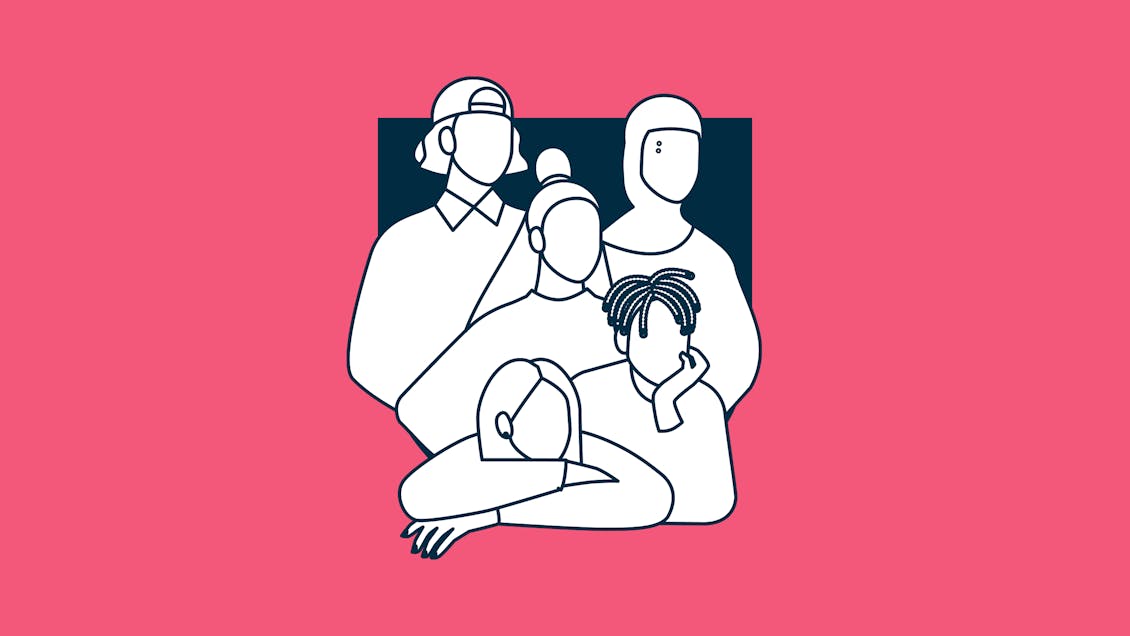How Gen Z can use AI in the workplace

Forget the doomsday scenarios — early-career workers could be the most empowered
Each year, college students depart their lecture halls and enter the workforce, finding a world of work fundamentally transformed from the one their parents encountered. I’ll admit I’m old enough that some of my earliest professional tasks included figuring out how to use photocopiers and fax machines. The class of 2024 may get to bypass the kind of monotonous drudgery once considered a rite of passage for entry-level jobs — all thanks to AI.
Compared to other generations, Gen Z (the children and young adults born between 1997 and 2012) is the most AI-ready generation, according to LinkedIn data. Not only are they more likely to have coding skills and familiarity with AI tools, but they also are eager to continue learning on the job — they just need to be given the chance.
Over the past year, the labor market has tightened in industries like big tech. Job prospects for 2024 graduates are projected to be down by 2%, according to the National Association of Colleges and Employers. In the financial services industry, chilling reports are circulating that AI could eliminate entry-level analyst jobs.
Even so, it’s not all doom and gloom. Microsoft’s Work Trend Index found that leaders in cybersecurity, engineering, and creative design are worried they don’t have enough talent to fill key positions. Deloitte’s State of Gen AI report found that more organizations expect the technology to increase headcount (39%) than to decrease headcount (22%) — predicting increased demand for Gen AI and data expertise.
It’s too soon to say how AI will redefine the novice employee experience. One thing is for sure — whether you’re a recent college grad or worker of any age worried about job security, being proactive and adaptive in the face of disruption is generally a smart move.
How can the next generation more confidently navigate the new world of work? Here are some tips for Gen Z employees as they begin their careers.
Be cautiously optimistic about AI
Across industries, AI is changing the game. There is resounding support for AI in the enterprise because of its potential to capture trapped value. In a recent Gartner poll of more than 1,400 executive leaders, 45% said they are piloting generative AI (a type of AI that creates original content), while another 10% said the technology is already in use.
At Modus, we’re seeing use cases for AI to do things that would otherwise take humans many, many hours to do. For example, AI has helped us crunch massive sets of data to map market opportunities and quickly rewrite complex content into information that someone with a sixth-grade reading level can easily understand.
However, when it comes to using AI in the digital workplace, employees should tread carefully and make sure they understand their employer’s compliance policies. Microsoft’s Work Trend Index found that a majority of workers are bringing their own AI tools to work, with Gen Z having the highest usage (85%).
Companies lacking governance around AI usage are not only at risk of data privacy breaches, but also potentially exposed to problems around accuracy, bias, and quality. If your employer hasn’t clearly communicated AI guardrails, do yourself a favor and ask which tools and use cases are approved by your organization before you incorporate them into your workflow.
Understand AI’s limitations
AI is not a replacement for human intelligence. It’s not even close. Why not? AI isn’t curious, and it can’t create new ideas. AI can’t think critically.
Humans are still needed to solve the kinds of complex problems that come with handling customer-facing interactions. Humans are also needed to review AI outputs for accuracy and bias. Policymakers are catching on that AI has the potential to discriminate in critical areas like hiring and recruiting, for example, with states like California considering measures that require audits of automated tools.
Your ability to ask questions, fact-check, make decisions based on a broader context, and come up with creative, innovative solutions will ensure you have a competitive advantage over any AI tool.
Develop your emotional IQ
Another limitation of AI is that it can’t have empathy or feel emotions like love or sadness. In the workplace, AI can’t be relied upon to inspire action, persuade, or relate to people — that’s still human’s domain. People that exhibit emotional intelligence in the workplace are more likely to be better at navigating uncertainty and adapting to change, traits that are conducive to innovation and growth.
According to Gallup research, Gen Z and millennials are more likely than other generations to expect a workplace that cares about their physical and emotional well-being. But, let’s face it — emotional maturity is something that comes with, well, maturity.
Recognize that people skills are not innate for everyone, and that’s ok. Take stock of your strengths and weaknesses regarding how you manage your emotions, resolve conflicts, and relate to others. Seek training and coaching from those around you with more established emotional capabilities, such as speaking confidently, listening, motivating, or leading. Take advantage of opportunities to collaborate across diverse teams and socialize with colleagues, especially on camera or in-person, where you can pick up on body language and other nuanced social cues.
Develop an entrepreneurial mindset — or even a side hustle
Whether it’s building a personal brand as a maker or content creator, freelancing, or niche consulting, Gen Z is leaning into digital side gigs to help get ahead in their careers. Not only are entrepreneurial-minded people able to make extra income on their own terms, but being self-employed outside of traditional employment offers some stability in the face of AI’s threat to replace some categories of workers.
Developing domain expertise and gaining experience pitching your own skills — particularly in areas that you are passionate about — will make you more attractive to future employers. Of course, work-life balance is also very important to Gen Z. And ironically, this is where the promise of AI could help — by removing mundane and repetitive tasks, workers may have more time to focus on more meaningful and creative work. However, knowing where to draw the line between hustle and burnout is key. No one wants to see a future where AI turns humans into machines.
Embrace your inner leader
So, what does the first few years of your career look like when you’re armed with super intelligence? Will fresh-faced workers dive straight into experimentation, problem-solving, discovery, and creative work rather than soul-crushing tasks like data entry, spreadsheet crunching, and file sorting?
I can only imagine how quickly I could have risen into more challenging projects if I had access to a company knowledge base as a newbie worker. No longer would I have to feel any sense of imposter syndrome, or fear of asking a “stupid question” if I could use AI as a sounding board.
Organizations that recognize the power of AI to shift workers into more dynamic roles will attract and retain a more engaged workforce. Managers and executives will have to rethink the corporate top-down structure as well. Consider the example of an entry-level worker that moves horizontally through an organization, gaining experience across various teams and departments.
During a virtual event hosted by A.team earlier this year, “Staying Human in the Age of AI,” I was struck by a powerful statement by Wagner Denuzzo, an organizational leadership consultant. “Everyone in the new workplace is a leader,” he said. “There is no more the hero leader that comes in to save the world… we have to start thinking that leadership is a shared experience.”
And isn’t that the great dream of AI technology — to allow more people to focus on more meaningful, more purpose-driven tasks? Perhaps we’ll find the courage to no longer think of the workplace as a corporate ladder that divides and defines generations, but rather an ecosystem that allows us to share collective intelligence and the rewards that come with it.

